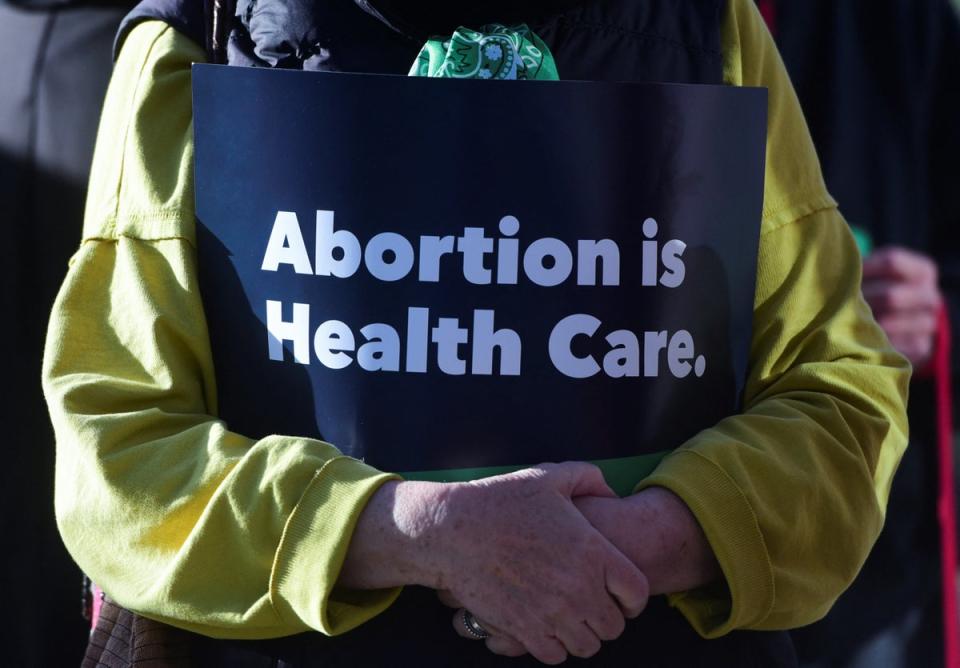Texas abortion pill ruling partly blocked by appeals court – but barriers to access upheld
A federal appeals court has partly blocked a Texas judge’s ruling that would have suspended access to a widely-used abortion pill.
In an order just before midnight on Wednesday, the US 5th Circuit Court of Appeals granted the Justice Department’s request to put US District Judge Matthew Kacsmaryk’s ruling on hold.
This now means that the US Food and Drug Administration’s (FDA) approval of the medication abortion drug mifepristone will stay in effect and the drug will remain on the market while an expedited appeal plays out.
However, while the appeals court ruling protects an outright ban on the abortion pill, the conservative-led panel has effectively made the drug harder for Americans to obtain.
Parts of Judge Kacsmaryk’s ruling were left in place by the appeals court, suspending changes the FDA made in 2016 to broaden access to the drug.
Among the restrictions lifted – and which are now back in place – are the requirements that mifepristone be picked up in person and that a qualified physician must supervise the obtaining of the pill.
The appeals court panel – made up of George W Bush nominee Judge Catharina Haynes and two Donald Trump nominees Kurt Engelhardt and Andrew Oldham – said that, while it was reinstating the approval of the drug, the DOJ has not shown they are likely to succeed in fighting against the challenge to the rule changes.
“As far as the record before us reveals, FDA has not structured the distribution of any comparable drug in this way,” the panel said.
Last Friday, Judge Kacsmaryk issued a ruling to revoke the FDA’s 23-year approval of the drug – in a move that marked perhaps the most consequential backpedaling of abortion rights since Roe v Wade was overturned last year.
In November, a group of anti-abortion activists filed a lawsuit against the FDA’s approval of mifepristone and the way the agency has changed the rules around its use, making it easier to obtain.
The judge – who has made several right-wing rulings – sided with them.
In his ruling, Judge Kacsmaryk used language pulled directly from anti-abortion activists, including referring to abortion providers as “abortionists”, abortion patients as “post-abortive women,” and a fetus as an “unborn human”.

He also dismissed findings from major health organisations that determined the drug is both overwhelmingly safe and effective.
The judge’s ruling had been set to take effect in seven days – on 14 April – unless the appeals court intervened, prompting protests from the nation’s leading abortion rights advocacy groups and the appeal brought by the Biden administration.
The DOJ appealed the decision, saying it “upended decades” of federal guidance and risks “depriving patients of access to this safe and effective treatment, based on the court’s own misguided assessment of the drug’s safety” and efficacy.
Mifepristone is used for more than half of all abortions in the US.
The drug was approved for use by the FDA in most cases up to 10 weeks of pregnancy in 2000. A vast majority of abortions occur within the first nine weeks. From 2019 through 2020, nearly 93 per cent of all abortions were performed before the 13th week.
Mifepristone is also used to treat miscarriages. Roughly 10 per cent of clinically recognized pregnancies end in miscarriages, according to the American College of Obstetricians and Gynecologists.


